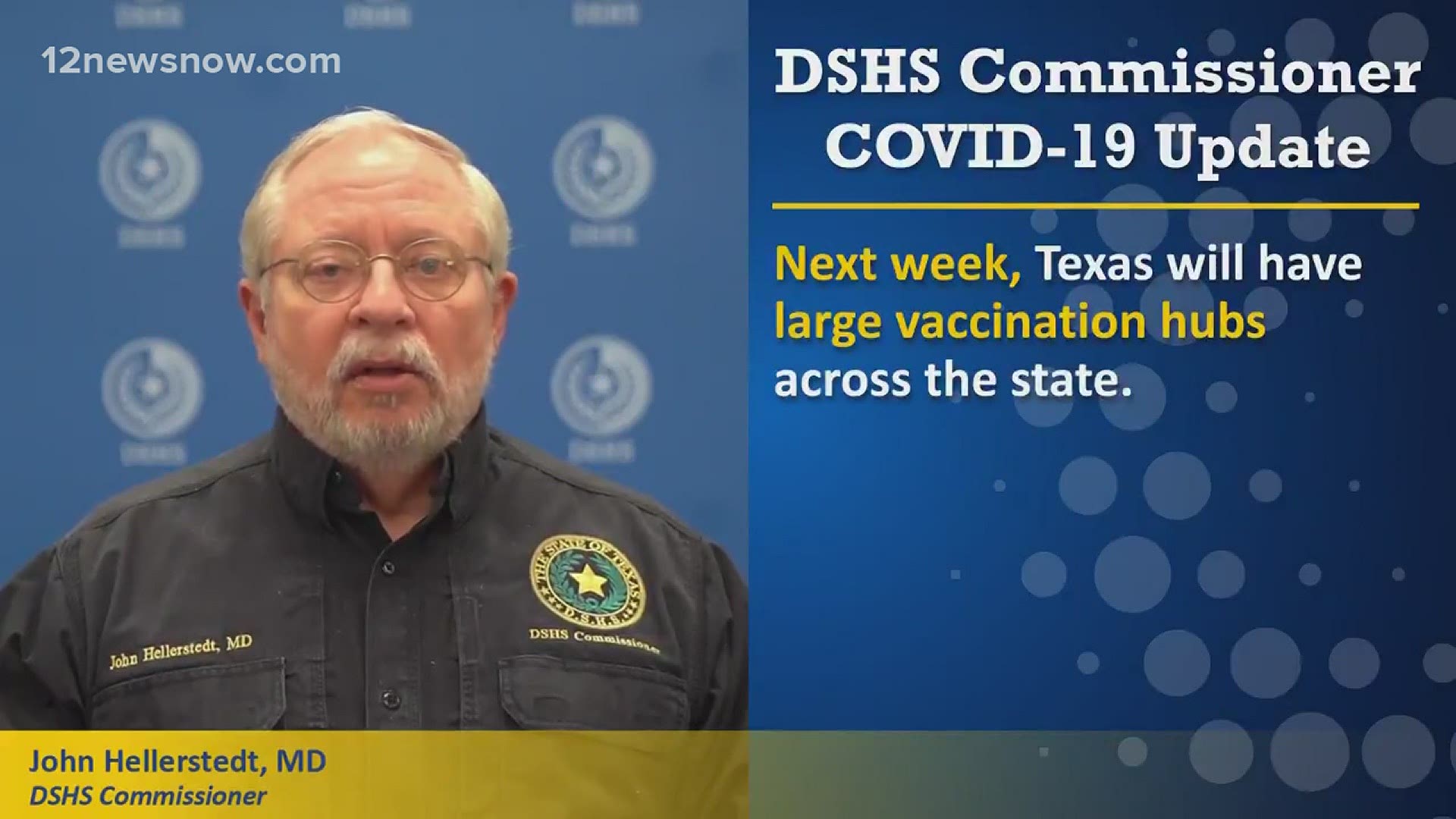BEAUMONT, Texas — Hearing Jefferson County will not be included as a mass vaccination hub right away was not the news Southeast Texas officials were looking for.
The state released a list over the weekend that included 28 counties that will serve as those hubs.
More than 158,000 doses will be distributed among those sites.
They are mostly in larger metro areas.
Jefferson County Judge Jeff Branick said he understands why the need for the larger areas exists, but there are several counties around the same size as Jefferson County that are on the list.
"We're going to work very hard this week to try and press on about including Jefferson County in the next mass vaccination," Branick said.
Even though the vaccines are not coming to Southeast Texas, there is still some hope.
Texans in phase 1A and 1B can still go to any hub sit in the state to get vaccinated. You don't have to live in that area, but you will need to sign up first.
Coronavirus symptoms
The symptoms of coronavirus can be similar to the flu or a bad cold. Symptoms include a fever, cough and shortness of breath, according to the Centers for Disease Control.
Most healthy people will have mild symptoms. A study of more than 72,000 patients by the Centers for Disease Control in China showed 80 percent of the cases there were mild.
But infections can cause pneumonia, severe acute respiratory syndrome, kidney failure and even death, according to the World Health Organization. Older people with underlying health conditions are most at risk.
The CDC believes symptoms may appear anywhere from two to 14 days after being exposed.
RELATED: VERIFY: No, members of Congress who are self-quarantined for coronavirus cannot vote remotely
Human coronaviruses are usually spread through...
- The air by coughing or sneezing
- Close personal contact, such as touching or shaking hands
- Touching an object or surface with the virus on it, then touching your mouth, nose or eyes before washing your hands.
Help stop the spread of coronavirus
- Stay home when you are sick.
- Eat and sleep separately from your family members
- Use different utensils and dishes
- Cover your cough or sneeze with your arm, not your hand.
- If you use a tissue, throw it in the trash
Lower your risk
- Wash your hands often with soap and water for at least 20 seconds. If soap and water are not available, use an alcohol-based hand sanitizer.
- Avoid touching your eyes, nose, and mouth with unwashed hands.
- Avoid close contact with people who are sick.
- Clean and disinfect frequently touched objects and surfaces.
- If you are 60 or over and have an underlying health condition such as cardiovascular disease, diabetes or respiratory illnesses like asthma or COPD, the World Health Organization advises you to try to avoid crowds or places where you might interact with people who are sick.


